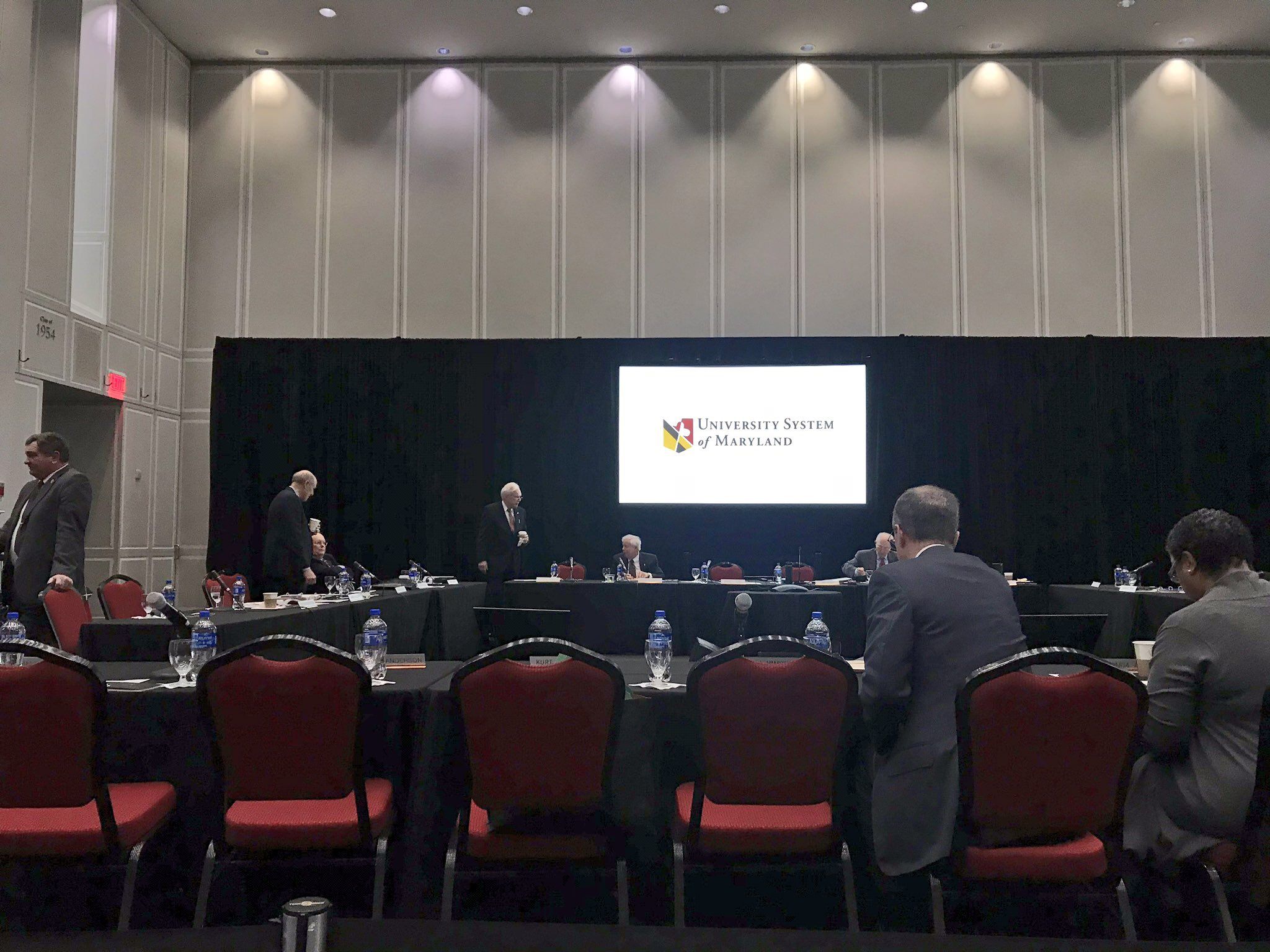In a presentation about Title IX enforcement in light of Education Secretary Betsy DeVos’ latest proposals to change the process, a consultant updated the Board of Regents on regulations and urged them to consider public relations during investigations.
“I don’t think I have to emphasize to this Board of Regents the importance of public relations,” said Megan Farrell, a Title IX coordinator for Palo Alto Unified School District, in the board’s Friday meeting. “Being ready with press responses and not shutting down is really part of surviving these things.”
The board’s former chairman, James Brady, resigned following controversial personnel recommendations in an Oct. 30 press conference. Brady announced the regents wanted former University of Maryland football coach DJ Durkin and athletic director Damon Evans to continue in their roles — but amid pushback shortly after, university President Wallace Loh fired Durkin.
Brady stepped down the day after Durkin’s firing, and the new chair, Linda Gooden, apologized for the board’s decisions.
But Preventing Sexual Assault president Rachel Colonomos said she didn’t think bringing up PR concerns was appropriate “in a meeting of that caliber.”
“If the university doesn’t actually care about each individual case because they’re afraid of looking bad, students are just going to keep reporting less and less,” she said.
The U.S. Department of Education is currently undergoing three distinct investigations into how the University of Maryland handles sexual violence issues, and this university’s Office of Civil Rights and Sexual Misconduct has had several personnel changes this year. In August, the office lost its permanent director, and several other employees left the office in the fall. Some new staff have been hired, but the search for a new director continues.
[Read more: Here’s how Betsy DeVos wants to change guidelines for college sexual misconduct cases]
Farrell’s presentation focused on the history of Title IX laws and protections on federal and state levels, emphasizing Maryland’s protections and laws are “very proactive” compared to other states. The state requires universities to supply representation to all parties and conduct campus surveys on the issue.
Even so, Farrell noted some respondents to accusations of sexual assault and other Title IX violations felt the system was biased toward the accuser.
“There has been a concern that the pendulum has swung too far in favor of victims,” Farrell, an alumna of this university, said. “You have to make sure that you have presented the other side’s story to this person and allow them to respond to every piece of evidence.”
Under DeVos’ proposed regulation changes, the definition of sexual harassment is updated, universities’ liability is lowered, and there are greater protections for the accused, such as greater due process, prior notice of the allegations, cross-examination, and equal opportunity to appeal.
[Read more: UMD SGA rebukes Betsy DeVos’ proposed new Title IX guidelines]
The proposal is currently in the public comment phase, and members of the public have until January 28 to submit their input.
The Student Government Association condemned the new Title IX proposals in a resolution at their meeting last week, but SGA director of sexual misconduct prevention Julia Novick agreed the proposed changes aren’t entirely negative.
“I think it’s important to know that not everything proposed in the new regulations is bad,” the junior English and public health science major said. “That being said, the way that things are set up at Maryland specifically, I think our process is fair for both parties.”
The University System of Maryland uses a preponderance of the evidence standard, which means evidence must indicate it’s “more likely than not” that the incident occurred, which Novick feels is fair. But the new regulations could make the process more just at other universities by providing more guidelines on how to facilitate due process, she said.
But Colonomos said when it’s sexual assault being investigated, the dynamic should be different.
“There are two sides to every story,” the senior hearing and speech sciences major said. “[But] I do think there has to be more weight on what the victim says than the perpetrator.”



